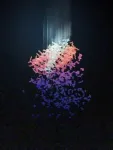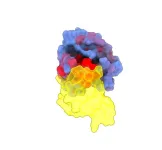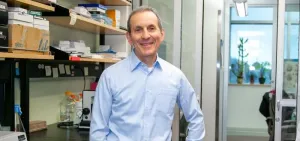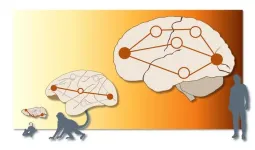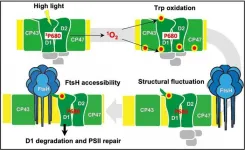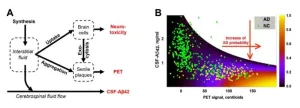(Press-News.org) As climate change redistributes terrestrial ecosystems across the globe, the world’s natural capital is expected to decrease, causing a 9% loss of ecosystem services by 2100. That’s according to a study of natural capital published today in the journal Nature led by scientists at the University of California, Davis, and Scripps Institution of Oceanography at UC San Diego.
Breathable air, clean water, healthy forests and biodiversity all contribute to people’s well-being in ways that can be very difficult to quantify. “Natural capital” is the concept scientists, economists and policymakers use to represent the current and future flow of benefits the world’s natural resources bring to people.
“The big question is what do we lose when we lose an ecosystem?” said lead author Bernardo Bastien-Olvera, a doctoral student at UC Davis when the study was conducted and currently a postdoctoral fellow at Scripps. “Flipping the question: What do we gain if we are able to limit climate change and avoid some of its impacts on natural systems? This study helps us better consider damages not usually accounted for. It also reveals an overlooked, yet startling dimension of climate change effects on natural systems — its capacity to exacerbate global economic inequality.”
Profound inequalities
When countries lose natural capital, their economies suffer. The study found that, by 2100, climate change-induced changes to vegetation, rainfall patterns and higher CO2 result in an average 1.3% reduction in gross domestic product, or GDP, across all the countries analyzed. It further found profound inequalities in the distribution of these impacts.
“Our research found that the world’s poorest 50% of countries and regions are expected to bear a staggering 90% of the GDP damages,” Bastien-Olvera said. “In sharp contrast, the losses for the wealthiest 10% might be limited to just 2%.”
The authors said this is largely because lower-income countries tend to rely more on natural resources for their economic production, and a larger fraction of their wealth is in the form of natural capital.
Natural and economic values
For the study, the authors used global vegetation models, climate models and World Bank estimates of natural capital values to estimate the consequences of climate shifts on countries’ ecosystem services, economic production and natural capital stocks.
These estimates may be conservative, as the analysis considered only land-based systems — primarily forests and grasslands. Bastien-Olvera plans to address marine ecosystem impacts in future research. The study also didn’t account for disturbances like wildfires or insect-driven tree mortality.
Accounting for nature
The overall findings underscore the importance of creating climate policies that account for the particular values each country derives from its natural systems.
“With this study, we’re embedding natural systems and human well-being within an economic framework,” said senior author Frances C. Moore, an associate professor in the UC Davis Department of Environmental Science and Policy. “Our economy and well-being depend on these systems, and we should recognize and account for these overlooked damages when we consider the cost of a changing climate.”
The study was funded by the National Science Foundation.
“Thanks to the efforts of this research team, we now know that damage to ecosystems impacts human well-being in ways that are both measurable and wildly disproportionate across populations,” said Jeffrey Mantz, NSF program officer. “The results will be critical to abating economic losses in the coming decades.”
END
Ecosystem benefits to humanity expected to decline by 9% by 2100
Nature’s benefits to decrease as climate change shifts ecosystems across borders
2023-12-18
ELSE PRESS RELEASES FROM THIS DATE:
Public benefit programs and differential associations with child maltreatment by race and ethnicity
2023-12-18
About The Study: The results of this study raise concerns that benefit programs may add relative advantages for white children compared with Black and Hispanic children and contribute to racial and ethnic disparities in child protective services investigations. States’ eligibility criteria and distribution practices should be examined to promote equitable effects on adverse child outcomes.
Authors: Henry T. Puls, M.D., of Children’s Mercy Kansas City, is the corresponding author.
To access the embargoed study: Visit our For The Media website ...
Association between daily toothbrushing and hospital-acquired pneumonia
2023-12-18
About The Study: The findings of this systematic review and meta-analysis of 15 randomized clinical trials with an effective population size of 2,786 patients suggest that daily tooth brushing may be associated with significantly lower rates of hospital-acquired pneumonia, particularly in patients receiving mechanical ventilation, lower rates of intensive care unit (ICU) mortality, shorter duration of mechanical ventilation, and shorter ICU length of stay. Policies and programs encouraging more widespread and consistent toothbrushing ...
Secret vulnerabilities of cancer’s ‘death star’ revealed
2023-12-18
Researchers at the Centre for Genomic Regulation in Barcelona, Spain, and the Wellcome Sanger Institute near Cambridge, UK, have comprehensively identified the allosteric control sites found in the protein KRAS. These are highly sought after targets for drug development, representing secret vulnerabilities which can be exploited to control the effects of one of the most important causes of cancer. The study presents the first complete control map for any protein and is published today (18 December) in the journal Nature.
KRAS ...
Toronto study identifies new concepts for GLP-1 action in the brain, the 2023 Science magazine breakthrough of the year
2023-12-18
Research pioneer Dr. Daniel Drucker has much to be proud of, as the GLP-1-based diabetes drugs hailing from his early research are named 2023 breakthrough of the year by the Science Magazine.
Not only have millions of people with type 2 diabetes benefitted from GLP-1 agonists, but the drugs also produced wide-ranging health benefits beyond weight loss in two recent patient trials.
For years, GLP-1 agonists have been known to have a fortuitous side effect of improving metabolic health, but how this is regulated in the body remains unclear. Now Dr. ...
Coral atoll islands may outpace sea-level rise with local ecological restoration, scientists say
2023-12-18
Ecological restoration may save coral atoll islands from the rising seas of climate change, according to an international team of scientists, conservationists, and an indigenous leader.
While global carbon emission reduction is imperative, local measures could be the key to the islands outpacing sea levels, they argue today in the journal Trends in Ecology & Evolution.
“Far from being doomed, in their natural state most coral atoll islands could adapt to sea level rise”, says Dr Sebastian Steibl from the University of Auckland ...
NIH researchers create genetic atlas detailing early stages of zebrafish development
2023-12-18
Researchers at the National Institutes of Health have published an atlas of zebrafish development, detailing the gene expression programs that are activated within nearly every cell type during the first five days of development, a period in which embryos mature from a single cell into distinct cell types. These diverse cells become tissues and organs that form juvenile fish capable of swimming and looking for food. The findings are published in Developmental Cell.
“Perhaps surprisingly, tiny zebrafish provide us with significant insight ...
Unleashing canine travel: Hospitality and tourism sector urged to adapt to dog-friendly travel demands
2023-12-18
Estimated to be worth USD 50.1 billion by 2030, a Surrey team of researchers has uncovered the potential of the growing dog-friendly travel market. The Covid-19 pandemic drove an increase in UK household dog ownership, creating a need for tourism providers to adapt to accommodate these four-legged family members.
The Surrey team set out to understand why people travel with their dogs, how they feel about it, and what challenges they face doing so.
Lori Hoy, PhD Researcher and lead author of the study at the University of Surrey, said:
"Some reports suggest that the UK dog population stands at 11 million, with 29% of UK adults having a dog in their ...
More parallel ‘traffic' observed in human brains than in animals
2023-12-18
In a study comparing human brain communication networks with those of macaques and mice, EPFL researchers found that only the human brains transmitted information via multiple parallel pathways, yielding new insights into mammalian evolution.
When describing brain communication networks, EPFL senior postdoctoral researcher Alessandra Griffa likes to use travel metaphors. Brain signals are sent from a source to a target, establishing a polysynaptic pathway that intersects multiple brain regions “like a road with many stops along the way.”
She explains that structural brain ...
The role of oxidized tryptophan residues in repairing damaged photosystem II protein
2023-12-18
Photosynthesis refers to the fundamental biological process of the conversion of light energy into chemical energy by chlorophyll (a green pigment) containing plants. This seemingly routine process in plants sustains all the biological life and activities on Earth. First reaction of photosynthesis occurs at a site called photosystem II (PSII), present on the thylakoid membrane in the chloroplast where light energy is transferred to chlorophyll molecules. PSII is made up of a complex group of proteins, including the D1 and D2 reaction center proteins.
Light ...
Breaking the mold: Zarbio and Georgia State scientists unveil game-changing theory on Alzheimer's disease
2023-12-18
Despite affecting millions worldwide, Alzheimer's disease (AD) has long lacked effective treatments due to a fundamental inadequacy of our understanding of its etiology and pathogenesis. The absence of an integrative theory connecting the molecular origins of AD with disturbances at the organelle and cell levels, changes in relevant biomarkers, and population-level prevalence has hindered progress. Even though most scientists only hope that an integrative theory of AD will emerge soon, scientists from Zarbio and Georgia State University discovered sufficient data to formulate a framework for such a theory.
The molecular and cellular ...
LAST 30 PRESS RELEASES:
Scientists discover “bacterial constipation,” a new disease caused by gut-drying bacteria
DGIST identifies “magic blueprint” for converting carbon dioxide into resources through atom-level catalyst design
COVID-19 vaccination during pregnancy may help prevent preeclampsia
Menopausal hormone therapy not linked to increased risk of death
Chronic shortage of family doctors in England, reveals BMJ analysis
Booster jabs reduce the risks of COVID-19 deaths, study finds
Screening increases survival rate for stage IV breast cancer by 60%
ACC announces inaugural fellow for the Thad and Gerry Waites Rural Cardiovascular Research Fellowship
University of Oklahoma researchers develop durable hybrid materials for faster radiation detection
Medicaid disenrollment spikes at age 19, study finds
Turning agricultural waste into advanced materials: Review highlights how torrefaction could power a sustainable carbon future
New study warns emerging pollutants in livestock and aquaculture waste may threaten ecosystems and public health
Integrated rice–aquatic farming systems may hold the key to smarter nitrogen use and lower agricultural emissions
Hope for global banana farming in genetic discovery
Mirror image pheromones help beetles swipe right
Prenatal lead exposure related to worse cognitive function in adults
Research alert: Understanding substance use across the full spectrum of sexual identity
Pekingese, Shih Tzu and Staffordshire Bull Terrier among twelve dog breeds at risk of serious breathing condition
Selected dog breeds with most breathing trouble identified in new study
Interplay of class and gender may influence social judgments differently between cultures
Pollen counts can be predicted by machine learning models using meteorological data with more than 80% accuracy even a week ahead, for both grass and birch tree pollen, which could be key in effective
Rewriting our understanding of early hominin dispersal to Eurasia
Rising simultaneous wildfire risk compromises international firefighting efforts
Honey bee "dance floors" can be accurately located with a new method, mapping where in the hive forager bees perform waggle dances to signal the location of pollen and nectar for their nestmates
Exercise and nutritional drinks can reduce the need for care in dementia
Michelson Medical Research Foundation awards $750,000 to rising immunology leaders
SfN announces Early Career Policy Ambassadors Class of 2026
Spiritual practices strongly associated with reduced risk for hazardous alcohol and drug use
Novel vaccine protects against C. diff disease and recurrence
An “electrical” circadian clock balances growth between shoots and roots
[Press-News.org] Ecosystem benefits to humanity expected to decline by 9% by 2100Nature’s benefits to decrease as climate change shifts ecosystems across borders


